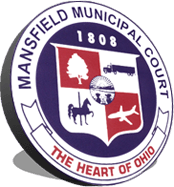The Community Work Program is available to the Court as a sentencing option – as part of the sentence, as a condition of fines and/or jail time being suspended, or as a way of satisfying the payment of fines rather than sitting it out in jail (at $99.00 per day). The value of community service is currently computed at the hourly rate of minimum wage.
For example, if an offender was fined $150.00 as part of the sentence imposed by the Court, and was unable to pay that fine, the Court may permit the offender the opportunity to perform community service. In this example, the offender would need to perform roughly 15 hours of community service to fulfill this obligation. Otherwise, the Court could incarcerate the offender for 3 days. The offender may now satisfy their court costs, if the Court permits, at the rate of $10.00 per hour in the Community Work Program.
All community work program participants sign an agreement for the performance of the community service. The contract specifies the number of hours needed, the placement site, and a time certain by which the service must be completed. All community service must be performed for a non-profit organization or for a governmental subdivision, and the participant cannot be compensated in any way for the service performed. If participants have certain skills or interests, matching that skill or interest to a work site is attempted, time permitting. In some cases, participants are permitted to perform the community service outside of Mansfield/ Richland County with the written prior approval of the Court and the Probation Department.
If further information is required about the Community Service Program, please contact the Probation Department at 419-755-9617.
Electronically Monitored House Arrest, or EMHA, allows eligible offenders to serve all or part of a jail sentence at a residence approved by the court. A day at the County Jail can cost an offender (or the taxpayer) $99.00. The daily EMHA cost varies based upon the type of equipment involved. Approved leave time is granted by the supervising officer (provided the proper verification has been supplied) for employment, treatment, medical appointments, church, educational activities, or other reasonable pursuits that enhance the overall rehabilitation plan. Every offender must comply with all terms and conditions of EMHA, and those terms are gone over with each offender individually, and a copy is provided to each offender. Offenders may not consume alcohol or illegal drugs while on EMHA and may be asked to submit to testing used to detect alcohol/drug consumption. Offenders sentenced to EMHA must have the monitoring equipment installed upon availability, and will be charged a $25 installation fee as well as $12 per day for monitoring.
Any non-compliance with the terms and conditions of the EMHA program will result in arrest, and incarceration for all the jail days, with no credit given for time served on EMHA. Any fees paid are non-refundable.
Please contact the Probation Department if additional information is needed at: 419-755-9617.
Ignition interlock is essentially a Breathalyzer attached to the ignition of a motor vehicle, and is designed to prevent an alcohol- or drug-impaired person from starting and driving a motor vehicle. The Court may order an ignition interlock as a condition for obtaining restricted driving privileges. The operator of the vehicle is required to give two tests before the device will permit the ignition of the vehicle to start up the vehicle.
The first test is a deep lung sample of breath. The interlock is programmed to “fail” this test if the operator has over a .02 level of alcohol in the breath sample. If the breath sample is under a .02 level, the device will then ask for the second test. This second test is called the CBPA test. This test is a code of breaths and pauses. Each CBPA test is programmed for each device. If the operator fails either test, the device will permit up to three attempts before a lockout. If the operator does get a lockout, the device will permit another test in approximately 30 minutes. Upon passing both tests, the device will allow the operator to start the car.
Tests may also be required in the event the driver is engaged in a long trip.
The Probation Department processes all paperwork needed when the Court orders an interlock to be installed, and can provide additional information and further instructions about installation and costs.
